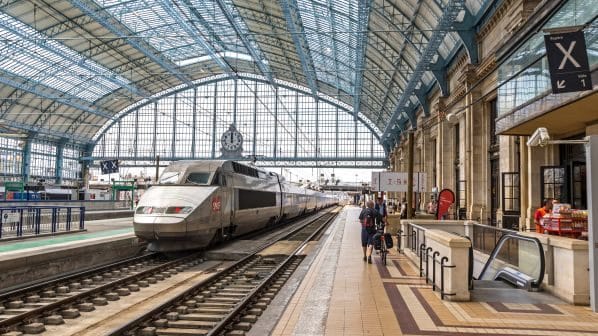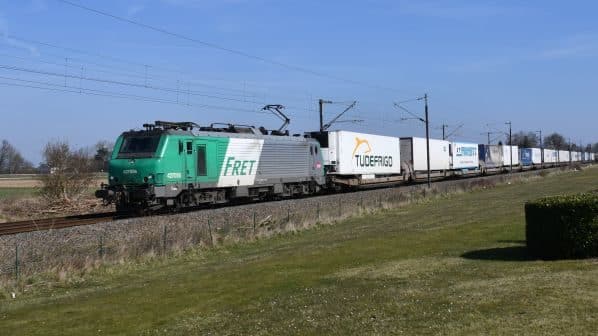FRENCH National Railways (SNCF) is to break-up its freight division, Fret SNCF, following an investigation by the European Commission (EC) into illegal state aid for the company between 2007 and 2019 when it recorded losses of €5.3bn.
The EC opened the investigation in January, stating at the time its concerns that the measures to support Fret SNCF were not in line with EU state aid rules. The freight division’s losses were continuously covered by SNCF through intra-group cash advances, which the EC says constitute state resources because of the shareholding and control of Fret SNCF by the French state.
Under the measures, which are intended to avoid future sanctions by the European Union (EU), Fret SNCF will be disbanded, with two new companies responsible for traffic and maintenance created by the end of 2024. Fret SNCF will also give up around 30% of its traffic or 20% of its revenue to competing operators, excluding other SNCF subsidiaries such as Naviland Cargo and Captrain France. This equates to 23 dedicated block trains, many of them intermodal.
The company will also:
- shed around 500 staff, about 10% of its total
- hand over 53 locomotives to companies taking over traffic
- sell off property, including its intermodal terminal at Saint Priest near Lyon, and
- be banned from competing for the lost traffic for 10 years.
The capital of the two new companies could later be opened up. The company will also be allowed to subcontract its services to other operators while the latter find the resources to take over.
The inference of the traffic losses is that Fret SNCF will be left mainly with France’s wagonload network, the most important traffic being steel products for ArcelorMittal and chemicals.
Dismay
Fret SNCF and SNCF Group do not agree with the EC’s analysis of the situation.
The head of SNCF’s rail freight division Rail Logistics Europe (RLE) and of Fret SNCF, Mr Frédéric Delorme, says that the decision comes as a “hammer blow” after Fret SNCF’s recent economy measures which have ended its loss making in the last two years. RLE, which includes Fret SNCF, recorded revenue of €1.7bn and Ebitda of €208m in 2022, an increase of 6.5% over 2021 revenues, when it recorded an Ebitda of €226m. The economy measures are reported to include cancelling €5.3bn of debt in 2019.
French MEP, Ms Karima Delli, chair of the European Parliament’s Transport and Tourism Committee, expressed dismay at the decision. In a letter published on Twitter, she said the abandonment of the company has “opened the way to an unknown that could have a strong effect on the much-needed process of decarbonisation.”
Since rail freight was opened up to competition in France in 2005, which ironically was a condition of granting more subsidies to Fret SNCF, the incumbent’s market share has shrunk to around 50%, although SNCF subsidiary Captrain France has picked up an increasing proportion of traffic.
Fret SNCF’s largest competitors are DB Cargo France, Lineas and Europorte. These companies have often complained about Fret SNCF’s chronic losses, implying that the incumbent was “selling services at a loss.”
French government funds rail freight
Meanwhile, the French government announced on May 23 that it will increase aid to the rail sector. In addition to subsidies of €175m a year to reduce track access charges, the government will add another €155m to the support measures from 2025 until at least 2030.
This is an increase from the current €300m a year, which includes the post-Covid “relaunch” subsidy.
The government will also invest €4bn in rail infrastructure to support rail freight from 2023 to 2030, including enlarging tunnels, modernising marshalling yards, creating new piggyback terminals, and upgrading minor freight lines.




